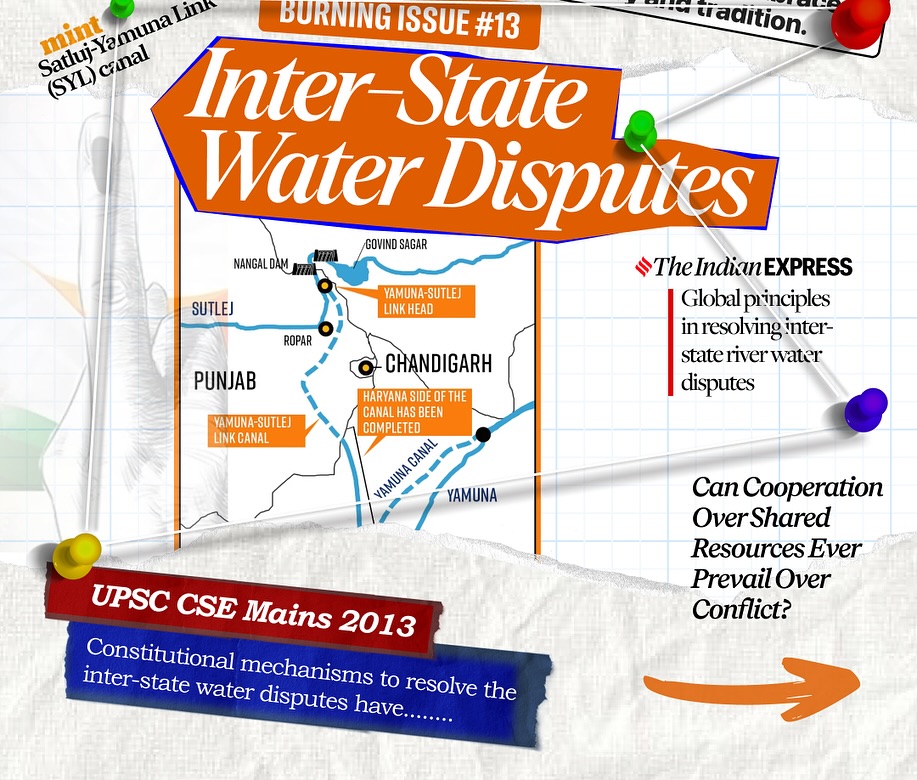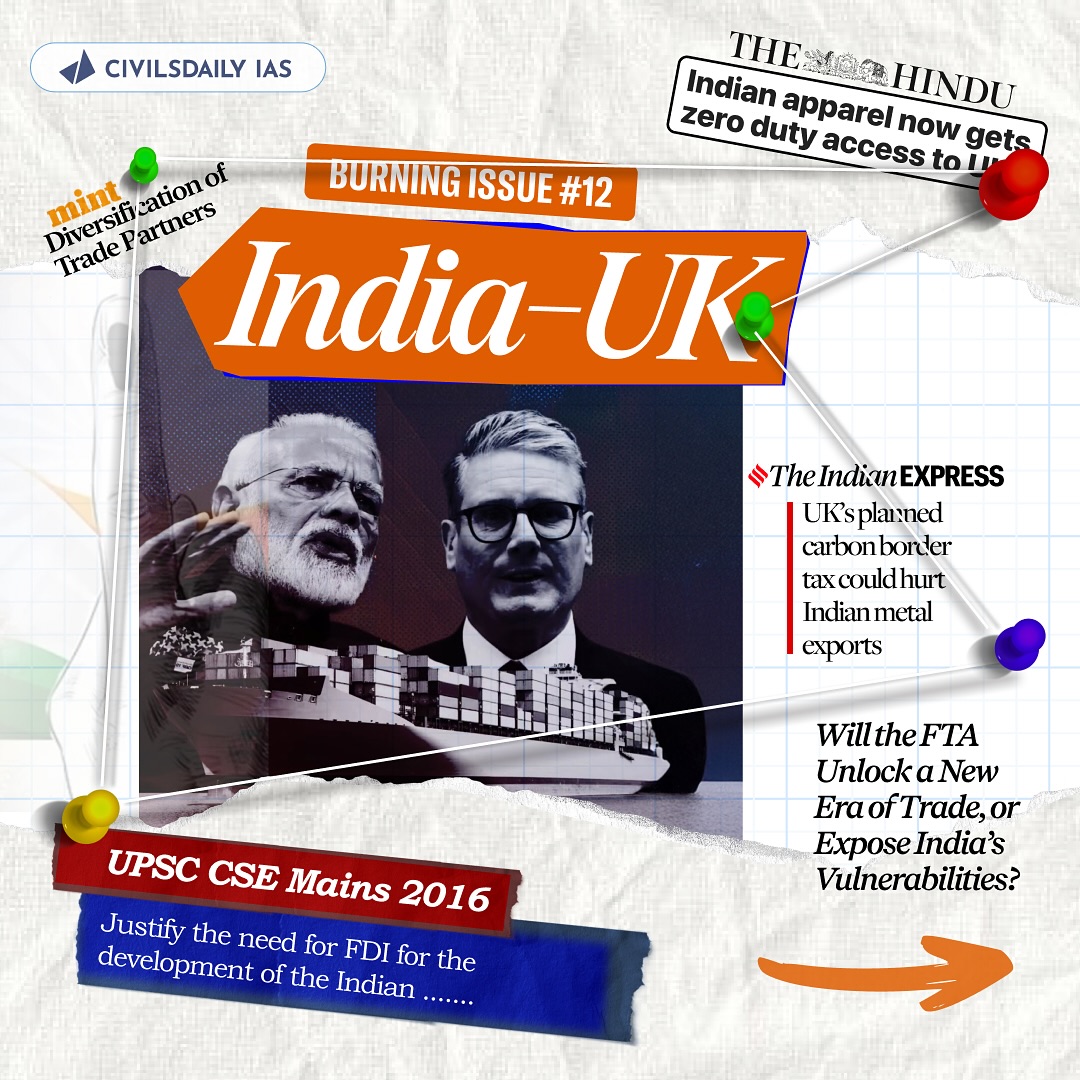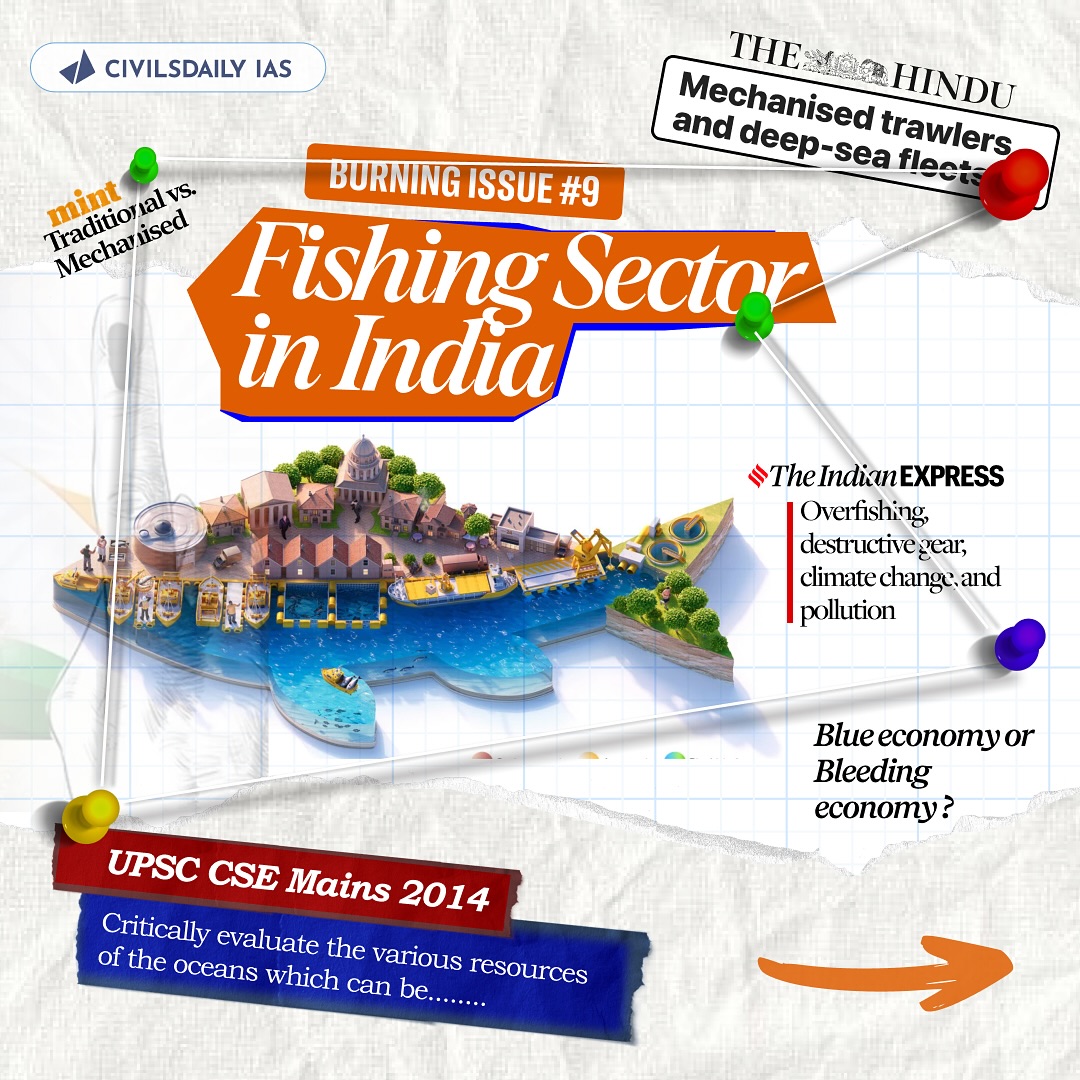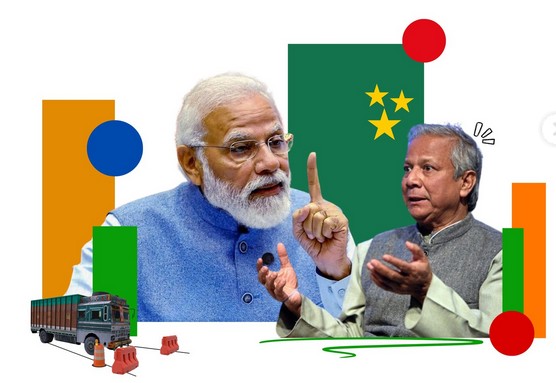Inter-State Water Disputes: Can Cooperation Over Shared Resources Ever Prevail Over Conflict?
N4S: Rivers unite India, but politics keeps dividing them – and this article shows how. UPSC often frames water disputes as system-failure questions (like the 2013 mains on structural vs process flaws). Many just cite Cauvery or case laws, but miss deeper issues – no standing tribunal, murky data, Centre-state blame games – all unpacked… Continue reading Inter-State Water Disputes: Can Cooperation Over Shared Resources Ever Prevail Over Conflict?


















